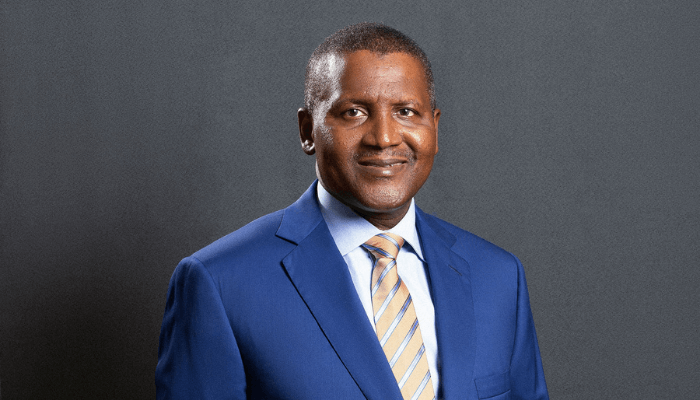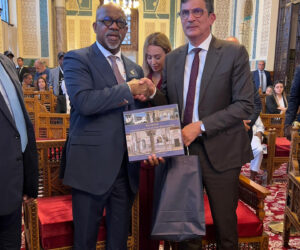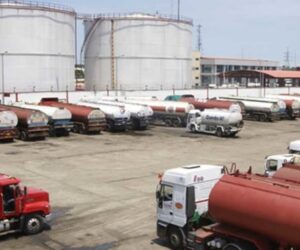Africa’s richest man Aliko Dangote who is now worth more than $28 billion said he was earning just seven thousand Naira trading in cement after starting out with a loan of $3,000 handed to him by his uncle.
In a wide ranging feature article by Bloomberg, Dangote whose family long thrived in a system that prizes commodities, spoke fondly about his early days of a journey to wealth creation.
By the late 1990s, he says, “I was making about 7,000 to 8,000 naira per day” from trading cement, enabling him to buy his first Mercedes, which cost 5,100 naira.
Read also: More European refineries struggle as Dangote ramps up output
Aliko’s maternal great-grandfather became one of West Africa’s richest men by trading peanuts and other goods with Britain, Nigeria’s former colonial ruler.
In the 1970s, Dangote, who grew up in the northern Nigerian city of Kano, started his own business with a $3,000 loan from his uncle. He traded cotton, cashew nuts, cocoa and sesame seeds. Within a few years, he moved into transportation, buying trucks and importing cement and other products.
Today Dangote has his business at the top of major economic sectors of Nigeria and his cement plants are located in several African countries. Dangote’s enterprises have boomed. His cement company listed on the Nigerian Stock Exchange in 2010 with an initial value of $13.8 billion, catapulting him into the ranks of the world’s ultrawealthy.
The next year, Dangote decided the time had come to build his own refinery, on land next to his fertilizer plant. Along with the logistical challenges and expense, he found himself at odds with the government and the oil industry.
Some of Dangote’s greatest business successes have come dealing in commodities. His detractors claim he uses access to government to race ahead of competitors but Dangote argues that he’s simply taken advantage of opportunities on which others have failed to capitalize.
He told Bloomberg, “if you are going to call first movers into business monopolist, then you will never establish a manufacturing base,” he says. “Or you’ll never establish anything that you call a country.”
Dangote first tried to get into the oil business in 2007, when he led a consortium attempting to buy two dilapidated, idle government refineries for $721 million.
Labor unions and opposition parties criticized the sale, arguing that Dangote had already benefited from other privatizations by snapping up mining concessions, a cement plant and a telecommunications license from the outgoing administration. Public pressure mounted, and, eventually, the government reversed the sale.
These days, the two plants are largely moribund. At one, the Port Harcourt refinery, where the government has spent $1 billion on its rehabilitation since 2021, storage tanks inside the complex sit rusting, surrounded by winding internal roads that are now overgrown with tall grass.
A few hundred meters away from the entrance, women sell bootleg gas in plastic bottles by the roadside as if in testament to Nigeria’s inability to profit from its natural riches.
Read also: Dangote Refinery and the power of entrepreneurship and private sector initiatives
On building the refinery, the world’s biggest single train plant, Dangote said, “right from the beginning of building the refinery, we realized that nobody can provide us with any service,” Dangote says, taking a break from work at his seven-bedroom Lagos mansion, where he’s lived for 35 years. “You have to provide almost everything by yourself.” But even he isn’t sure it was worth it. “If I knew what I was going to go through, I wouldn’t have tried it,” says Dangote, who’s 68 years old.
According to the Bloomberg Billionaires Index, Dangote’s net worth has surged by about $1 billion over the past three months, to $28 billion, as the refinery has ramped up. On the strength of his plant, Nigeria has become a net exporter of petroleum products for the first time in three decades. The facility is expected to run completely on local crude when the foreign supply contracts of domestic ¬producers expire this year. The refinery has the capacity to process 650,000 barrels of oil a day, meeting Nigeria’s entire gasoline demand and leaving room for exports to grow.









